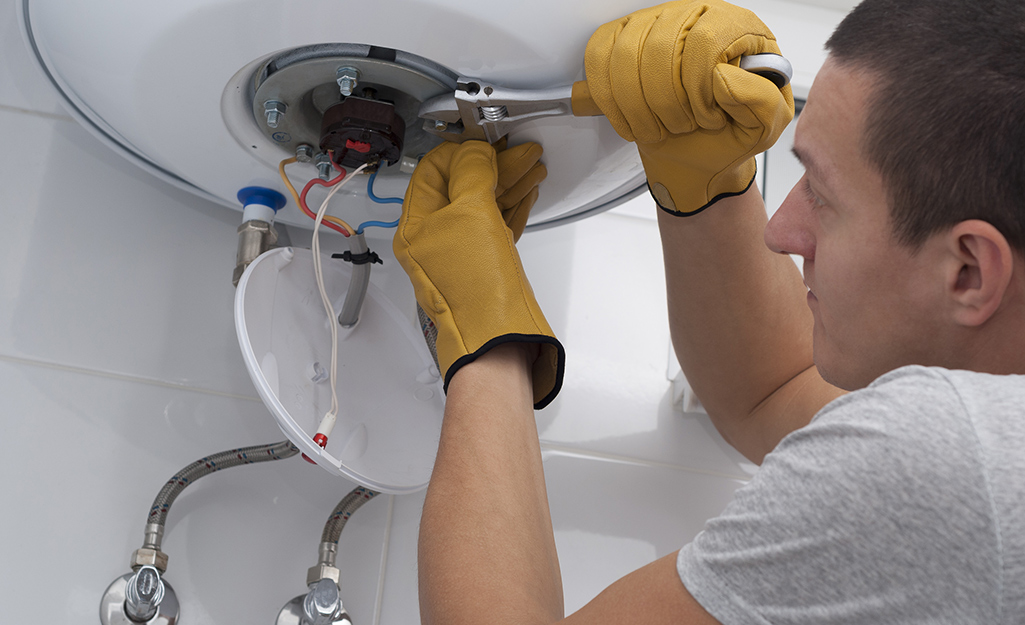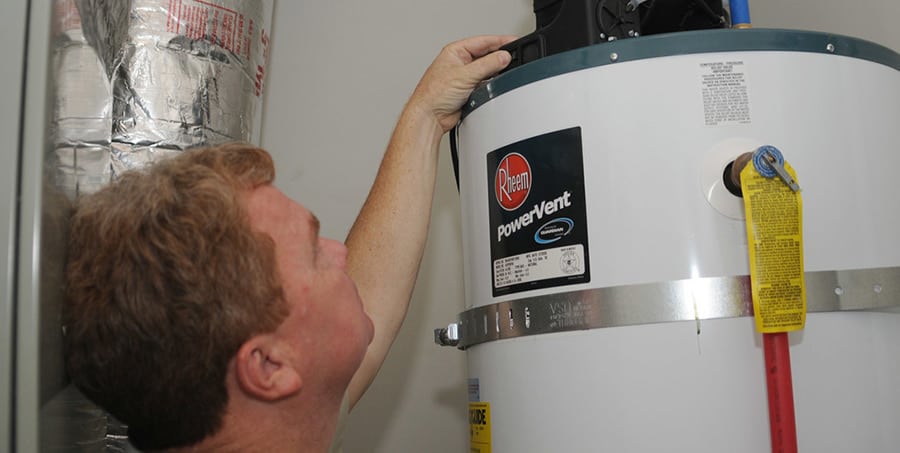Dealing with the Top Water Heater Crisis Situations
Dealing with the Top Water Heater Crisis Situations
Blog Article
What're your opinions on Is Your Water Heater Leaking??

A hot water heater is just one of the most vital standard home appliances that can be found in a residence. With hot water heater, you don't need to go through the tension of home heating water by hand every single time there is a need to wash, do the laundry, or the dishes. There is constantly a possibility that your water heating system would act up as with a lot of mechanical devices.
It is very important to keep in mind any little breakdown and also tackle it rapidly before points leave hand. The majority of times, your hot water heater begins to malfunction when there is a build-up of debris as a result of constant usage. As a preventative measure, regular flushing of your water heater is suggested to stop sediment build-up and protect against useful failure.
Common water heater emergencies and also how to take care of them
Leaking hot water heater tank.
A dripping tank could be an indicator of corrosion. It could trigger damage to the floor, wall as well as electrical devices around it. You could even be at risk of having your home swamped. In this situation, you should turn off your water heater, permit it to cool, and also carefully search for the source of the problem. Sometimes, all you require to do is to tighten a few screws or pipeline links in cases of minor leakages. However if this doesn't function as well as the leak continues, you may need to utilize the solutions of a professional for an ideal substitute.
Varying water temperature.
Your water heater can start generating water of various temperatures generally ice chilly or hot warm. There might be a demand to change either the home heating or the thermostat device of your water heating unit.
Inadequate hot water
Managing an insufficient supply of hot water can be irritating. It may be that the water heater can't sustain the hot water demand for your home. To take care of this trouble, you could attempt to change your heating unit's temperature level dial as well as await a few minutes. You can ask for the help of an expert plumber if the problem persists. You could upgrade your water heating system to one with a bigger capacity.
Blemished or smelly water
When this occurs, you require to understand if the issue is from the water or the container source. If there is no amusing odor when you run cold water, after that you are certain that it is your water heating system that is defective. The smelly water can be created by rust or the buildup of bacteria or debris in the water heating unit container.
Final thought
Some home owners disregard little caution as well as minor faults in their water heater system. This just results in more damage and also a possible total failure of your device. You should handle your hot water heater faults as soon as they come near stay clear of even more costs and unneeded emergency difficulties.
With water heating systems, you do not need to go through the tension of home heating water by hand every time there is a requirement to take a bathroom, do the laundry, or the dishes. Your water heater might start creating water of different temperatures usually ice cool or scalding hot. It might be that the water heating unit can not support the warm water demand for your home. If there is no funny scent when you run cold water, after that you are specific that it is your water heating system that is damaged. The stinky water can be triggered by corrosion or the accumulation of bacteria or debris in the water heating unit tank.
Common Water Heater Issues and What You Should Do
What Type of Water Heater Do You Have?
Before we begin it’s first important that you identify the type of water heater you have on your property. There are two main types of water heaters out there: conventional and high efficiency.
Both of these types of products typically use either gas or electricity to heat power. There are also solar water heaters that use a thermal collector on the roof or yard to heat the water.
While these models are not as common, they can cut heating costs in half. In this article, we will focus on conventional and high efficiency.
How Do My Electric and Gas Water Heater Work?
Though they look similar, electric and gas water heaters work very differently. It’s important to know their basic function because often problems can be specific to the heating source.
In the electric model, a thermostat on the side of the machine detects the temperature of the water in the tank. When the temperature needs to rise electricity flows to a heating element suspended in the water.
Gas models also use a thermostat device — typically with a mercury sensor at the tip and an additional sensor called a thermocouple. The thermocouple detects whether the pilot light is on and controls the flow of gas.
When the thermostat drops below the appropriate level gas is released which becomes ignited by the pilot light. The flame heats the bottom of the water tank which causes hot water to rise and cold water to drop.
This natural circulation continues until the water reaches the desired temperature. Then, the thermostat triggers the gas control valve to shut off the flow of gas.
What Are the Most Common Issues and How Do You Fix Them?
https://happyhiller.com/blog/common-water-heater-issues-and-what-you-should-do/

I was brought to that article about The Importance of Water Heater Maintenance through someone on a different web address. For those who enjoyed our article kindly be sure to share it. Thanks so much for taking the time to read it.
Urgent fix? Dial. Report this page